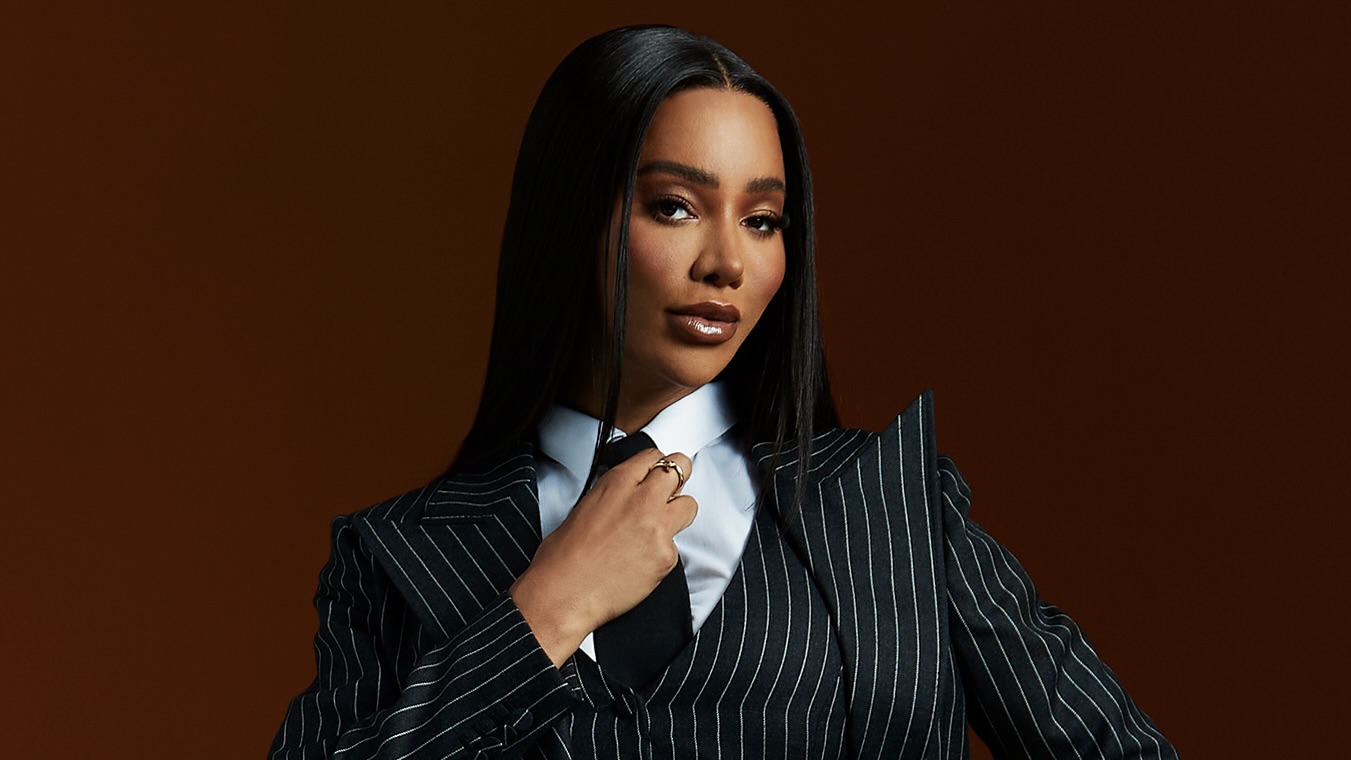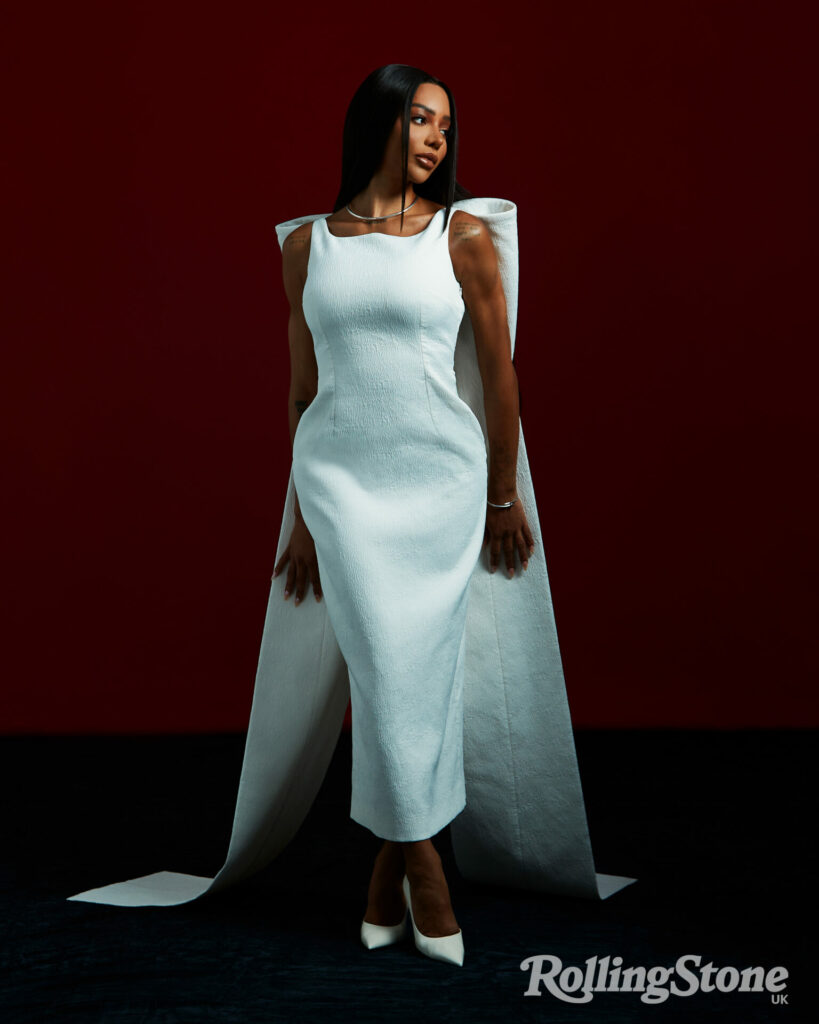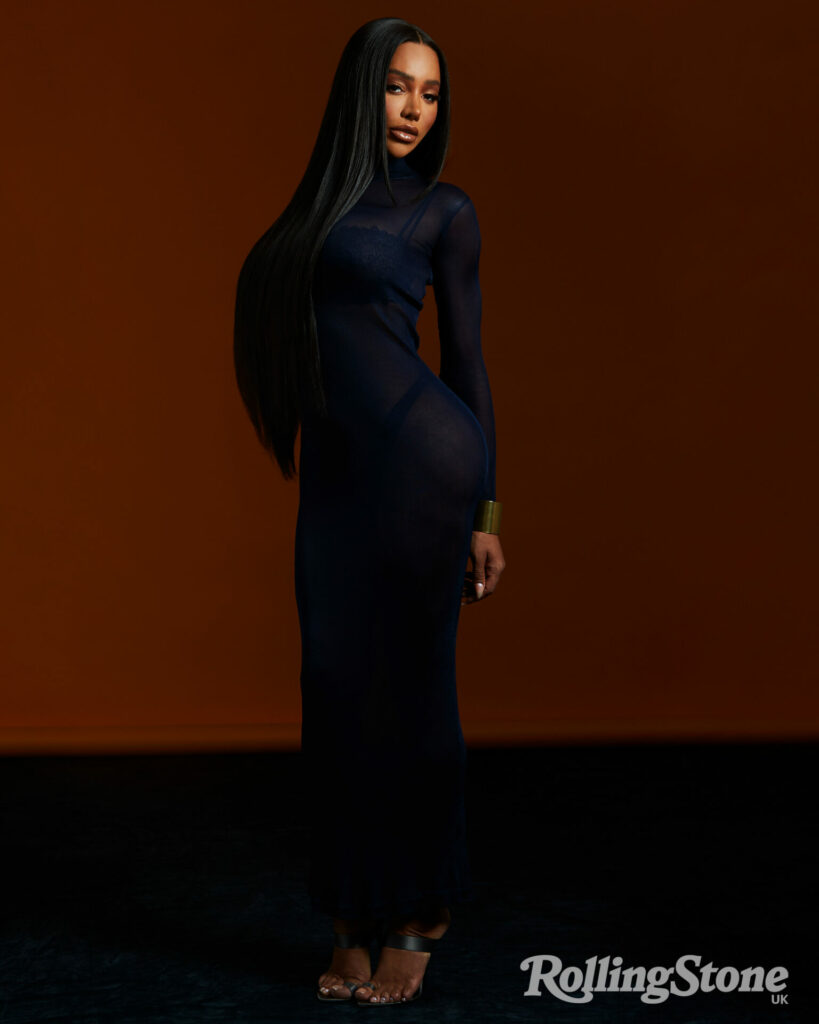Munroe Bergdorf answers questions on trans allyship from Jade Thirlwall, Sadiq Khan, Joe Lycett and more
To mark tomorrow's International Transgender Day of Visibility, the likes of Jonathan Van Ness are paying tribute to Munroe

Munroe Bergdorf – model, presenter, and activist – has become one of the most prominent trans voices in the UK.
For Rolling Stone UK, Bergdorf shared her knowledgable answers to questions from a wide range of celebrities for International Transgender Day of Visibility tomorrow.
From her wide-ranging activism to her advisory commitments, she is a powerful figure in the LGBTQ+ community.
Her debut memoir, Transitional: In One Way or Another, We All Transition, also took readers on a tour of her already established legacy and how she got there.
Now, she takes a seat with the culture mag to address burning questions from big names.
From London Mayor Sadiq Khan to comedian Joe Lycett, with pressing questions about how trans allies can show up to tackling trans misinformation, Bergdorf sheds ever-powerful wisdom and more.
JOE LYCETT: Hi Munroe. Joe Lycett here. Longtime fan, first time caller. My first question is, what is the one bit of legislation or change that the government can do to improve the lives of trans people?
One thing, wow. There’s so many things that this government needs to do. Aside from leaving the House of Commons. You know, we have a government that is not recognizing trans people’s humanity. And that comes into healthcare, that comes into welfare, that comes into access to housing, education, tackling mental health issues, hate crime and homelessness.
The list is really endless, but really the priority has to be healthcare. And that doesn’t just start and stop at hormones. That starts with support and understanding what trans people go through. Recognising that there are so many hurdles before you even begin the process. And supporting people in being able to live the life that they want to live.
So I would love the government to stop gatekeeping our healthcare and to reform and support the transgender healthcare system, which is currently in free fall and massively underfunded and overwhelmed. So that would be my priority if I was to be Prime Minister.
JADE THIRWELL: What do you love most about being a woman?
What I love most about being a woman is that despite everything happening in the world, I feel a freedom within myself. Like all trans women, I’ve had to fight for my womanhood. My body feels like mine and that’s something that I’m thankful for every day.

JONATHAN VAN NESS: Happy Trans Day Of Visibility, Munroe. And first of all, thank you so much for all the beautiful work you do. Congratulations on your book. We love you so much. Okay, here’s my first hard-hitting journalistic question.
What is the piece of misinformation about trans people that you wish people knew was false? And because that might be so hard Munroe, what are the top three pieces of misinformation about trans people that you wish people knew were false?
Oh, wow. The top three pieces of information that I wish people knew about trans people that are false. It really starts, I think, with the myth that children are having surgeries. Kids are not having surgeries, trans kids are not having surgeries anyway. But you know who is having surgeries? Intersex kids against their will. So if we are going to be talking about kids having surgeries against their will and bodily autonomy of infants, then let’s talk about what is happening to intersex infants against their will. I think that’s really, really important.
Number two, the myth or misunderstanding that we don’t already have access to women-only spaces with regards to transwomen. We have had access to women-only spaces since 2010, under the UK Equality Act, which entitles us to use the spaces that are in alignment with our gender identity. And it’s frustrating that there are so many conversations going on around having access to women-only these spaces. There’s so much concern and sensationalism around transwomen having access to women-only spaces. But there’s no statistics to suggest that it is a widespread problem, that is in any way going to put cisgender women at a disadvantage or in danger. So I think that that’s a myth that we all need to be debunking because we have had access to these spaces and nothing has happened.
“When I first began my transition, I was attacked in public and nobody did anything.”
I think the third is that trans people are different to anybody else. You know, it’s really important that we stop seeing trans people as “other”. We are just people, just like everybody else. We are people that deserve employment, people that deserve love, people that deserve to live out their dreams and do whatever they want in the world.
We have hopes, dreams, aspirations, talents, just like everybody else. So we deserve to see that represented in every single aspect of society. In every industry, not just the entertainment industry or music industry or film industry, or fashion industry, which have been very progressive and supportive of trans people. But where else are we not seeing trans people in many other industries?
So I think that we need to stop seeing transness as a media issue and as something that is a real life thing and real life people that are just trying to live their lives in the best way that they know how.

SADIQ KHAN: It is incredibly concerning to see the rights of trans people being attacked at home and abroad. What do you think is the most important thing a trans ally can do to show their support?
Hi Sadiq. Thank you for being such an incredible mayor. I’m really proud to live in a city that is run by a mayor who is so trans-inclusive, so thank you. One of the most concerning things that our community is facing right now is the elevated levels of transphobic hate crime. People being attacked in the street. People being attacked in their workplaces, in their homes. It’s just relentless. But if you see it happening, please intervene. If you see somebody in distress then be there for them. I mean, when I first began my transition, I was attacked in public and nobody did anything. And I think it was the fact that nobody did anything that hurt more than the fact that I was attacked, because it almost makes you feel like you deserve it. But if someone attacks somebody and other people step in, that just feels so much more hopeful in a really hard situation. That you know the kindness of strangers is alive and well.
LADY PHYLL: What can we do to support trans people in Uganda who are living in fear after the passage of the anti-homosexuality bill, which outlaws even identifying as LGBT+?
Hi Lady Phil, love you Icon. In instances like this, it’s really important that we understand that we are a global LGBT community. We can’t be thinking of ourselves as bound by borders, or nations or governments. We are people and we are all over the world. And until all of us are free, none of us are free. And that’s said so often, but I don’t really think that people necessarily think or feel it enough. When something happens over there is happening over here because we are all human. We are just on different rocks. That is all that’s different about that situation.
And it’s also why we should be supporting refugees and asylum seekers because this is an example of a situation that people are often running from and fleeing from, people that are actually fleeing for their lives because their own governments is discriminating against them. So support refugees. There are no borders. It’s really important that we think of each other as neighbours, as family.
